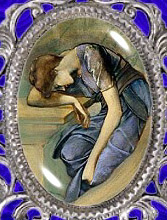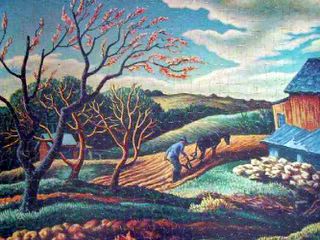
When I've nothing my leisure to hinder
I scarce get as far as the eaves;
Her head's instant out of the window
Calling out like a press after thieves.
The young men all fall to remarking,
And laugh till they're weary to see't,
While the dogs at the noise begin barking,
And I slink in with shame from the street.
My mother's aye jealous of loving,
My father's aye jealous of play,
So what with them both there's no moving,
I'm in durance for life and a day.
O who shall I get for to marry me?
Who will have pity to woo?
Tis death any longer to tarry me,
And what shall a poor maiden do?











